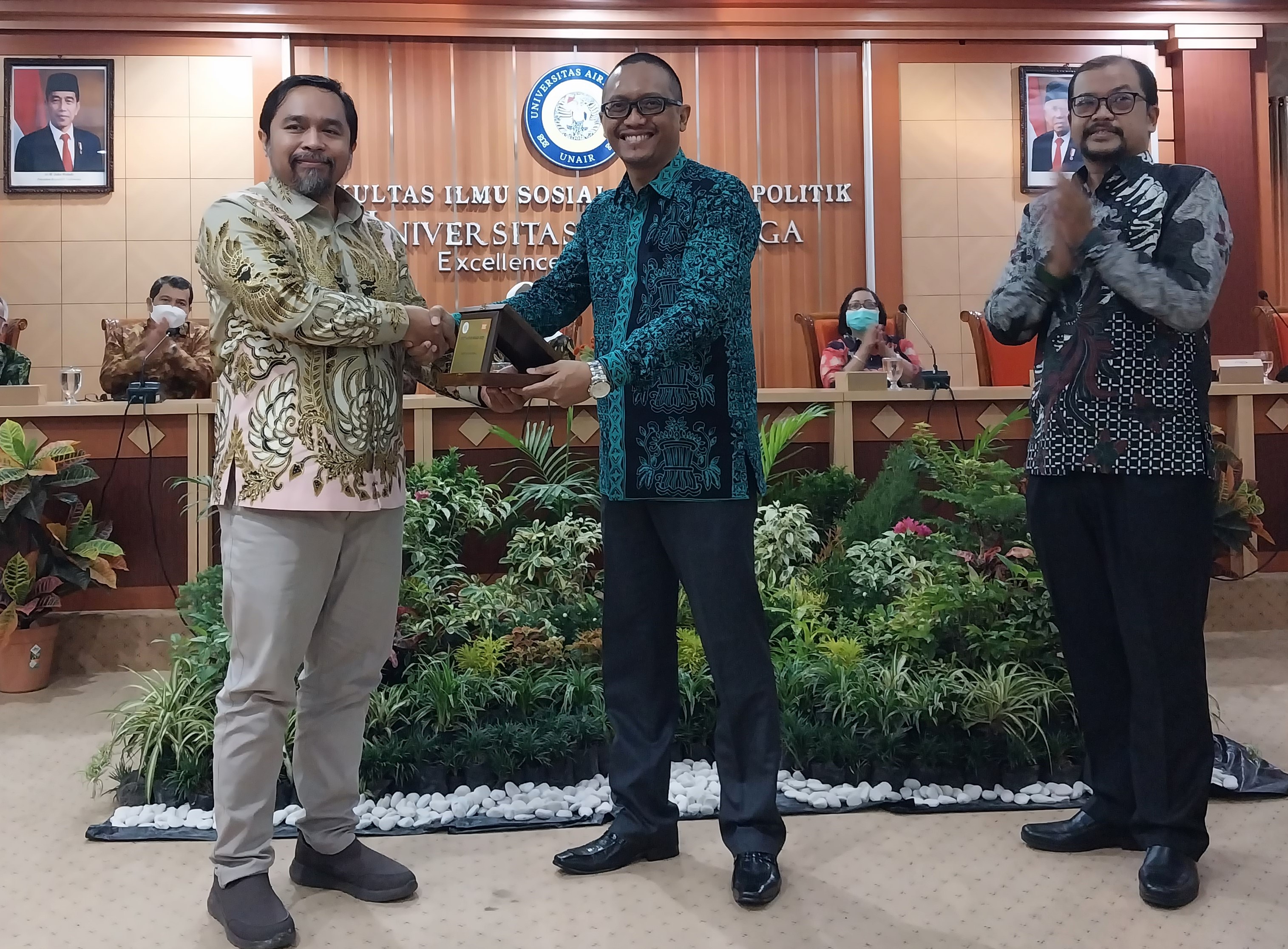UNAIR NEWS – Prof Soetandyo Wignjosoebroto MPA was one of the nation’s prominent figures in law sociology. The founder of Universitas Airlangga Faculty of Social and Political Sciences (FISIP) has been known for his humility and humanism.
To honor and commemorate his services, FISIP UNAIR holds the Soetandyo Award every year. The award was given to figures who are highly dedicated to maintaining human values, justice, defense of the marginalized, inclusivity, tolerance, democracy, and human rights.
This year, the award goes to Wahyu Dhyatmika, CEO of Info Media Digital. Interestingly, he is the first UNAIR FISIP alumnus to receive Soetandyo Award.
Quoting Prof Tandyo, Wahyu said that a healthy public space is essential to the Indonesian legal system. However, the recent Criminal Code (RKUHP) ratification was deemed to abridge civil liberties and meddle in individuals’ private spheres.
“The state, which should be the first to protect civil liberties, has instead become an arm of power that wants to reclaim civil liberties,” he said on December 15, 2022.
On the other hand, Wahyu believed that the journalism landscape in Indonesia has not fully sided with the public interest. It has not represented people’s voices yet.
“Our media landscape hasn’t changed. Media are still controlled by entrepreneurs with certain political affiliations,” said the Nieman Fellowship awardee at Harvard University.
Nowadays, digital media now increasingly relies on paid advertising for revenue. Those business models usually prioritize the news quantity and clicks.
“Readers are just a number, it becomes a commodity resulting in clickbait journalism,” he said.
Journalism gets dirtier with complex problems, like the plummeting trust in mainstream media, persecution of journalists, and gender-biased media and minority groups.
“This is the landscape of our information ecosystem today. When the law favors the powerful, disintegration happens. Social disaster is what we’ve got to pay,” Wahyu said.
Therefore, he made various breakthroughs to improve the information media ecosystem in Indonesia.
He assured that Tempo stands as an independent media with no major shareholder. Tempo also launched Tempo Witness to amplify marginalized groups.
“It’s an initiative to restore the news sovereignty to readers. We bring back the power of the media to the people,” Wahyu added.
Collaborating with multiple media in Indonesia, Tempo.co has also initiated IndonesiaLeaks. The platform allows the informants or whistleblowers to provide information for the public’s interests. IndonesiaLeaks helps protect their identities.
“If you send information to IndonesiaLeaks, people in the newsroom won’t know your identity,” he said.
His other work was the Cekfakta. Along with two hundred other media, the collaborative platform was intended to stop the spread of hoaxes.
At last, Wahyu emphasized that Professor Tandyo’s ideas get more relevant these days. Journalism should be able to keep the public’s space interest, just like the reasons it was first established.
“Journalism must get back to its spirit,” he said.
Author: Ghulam Phasa Pambayung
Editor: Khefti Al Mawalia









